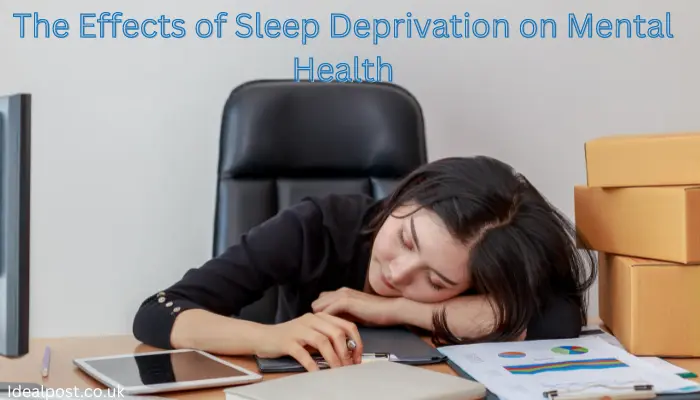Sleep lack can significantly impact our mental health, which is require for our cerebral cortex to function at its best. The impact of inadequate sleep on mental health will be examine in this article, along with the possible advantages of therapy with Ketamine Treatment for Depression.
Lack of Sleep and Mental Health
Millions of individuals throughout the world struggle with sleep deprivation regularly. When we sleep, our brains consolidate memories and experiences to analyze and store them.
Treatment of Depression with Ketamine
Its defining traits are consistent sadness, pessimism, and lack of interest in once-pleasant activities. Take a few weeks to take effect and might not be effective for many people. For individuals who do not react to conventional antidepressants, ketamine therapy for depression is a new therapy with encouraging outcomes.
In contrast to conventional antidepressants, ketamine might offer relief days or even hours after therapy, as opposed to weeks. For patients battling severe depression who’ve not found relief from conventional antidepressants, this makes it a desirable alternative. In a medical environment, ketamine therapy is often given intravenously, and the patients are closely track before and after treatment.
How About Learning More About Mental Health?
Various variables might contribute to mental health’s issues, particularly environment, biology, and life events. Although certain mental health’s conditions can be effectively treat with medicine and psychotherapy, others may call for hospitalization or electroconvulsive therapy. It’s crucial to be aware of the symptoms of mental health disorders and get help as soon as possible.
Differences in mood, behavior, and thought patterns are typical signs of mental health issues. Every person experiences these symptoms differently. Therefore it is important to be aware of any modifications in our feelings.
Supporting mental health’s and promoting wellbeing may be done in various ways. Several tactics consist of:
Getting adequate sleep
It is important for our mental health’s; as was previously said, thus it’s important to give yourself enough time to relax each night.
Eating a balance diet may improve our wellbeing and levels of energy as well as give our brains the nutrition they need to perform at their best.
Exercise
Activity regularly can improve mood and ease anxiety and tension.
Reaching out for support
If we are experiencing mental health’s issues, it is critical to get in touch with relatives, close friends, or a mental health professional.
Mindfulness
The act of being conscious, as in yoga or meditation.
Anxiety
Lack of sleep can make people feel more anxious, which makes them more prone to worry and stress. Nervousness and other anxiety-relate problems may result from this.
How Much Rest Do I Need To Get To Prevent The Emotional Repercussions Of Sleep Loss?
Most individuals require between seven to nine hours of sleep each night to prevent the emotional impacts of sleep deprivation. However, individual characteristics like age and health affect how much sleep a person needs.
Can Lack Of Sleep Cause Mental Health Problems?
Various mental health conditions, including depression, anxiety, and bipolar disorder, have been associate with sleep deprivation.
How Long Does It Take For Sleep Deprivation To Have An Emotional Impact?
Sleep deprivation can have an emotional impact even after only one night of inadequate sleep. Chronic sleep deprivation, however, can have more serious and protracted emotional repercussions.
How Can I Enhance My Mental Health If I’m Having Sleep Problems?
When suffering from sleep deprivation, there are numerous ways to promote emotional wellbeing. These include giving sleep priority, working out often, using relaxation methods, and getting help from a mental health expert.
Can Medicine Be Used To Treat The Emotional Repercussions Of Sleep Loss?
Treating the core cause of sleep deprivation is vital to enhance general emotional wellbeing. Medication can assist with the signs and symptoms of mental health illnesses brought on by sleep loss. Only utilize medication under the direction of a medical expert.
Conclusion
Lack of sleep may negatively affect our mental health, resulting in various problems like sadness, anxiety, or mood disorders. While some individuals may benefit from regular antidepressants, ketamine therapy for depression is a newer medication that has shown encouraging outcomes for those who do not react to conventional antidepressants.
If we are having trouble, it is crucial to prioritize our physical health and get help right away. Let’s Know More About Mental Health we may enhance our mental health and general well-being by forming good habits, getting help, and engaging in self-care.
